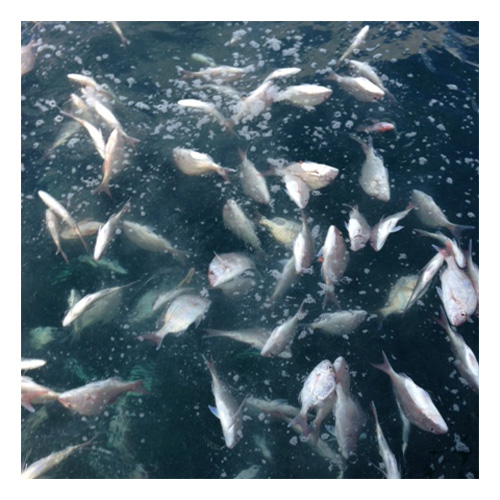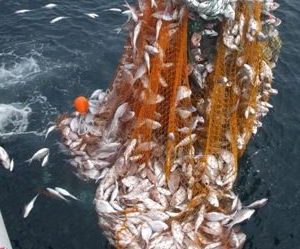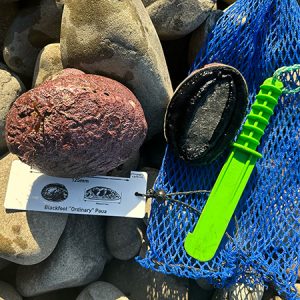The management and governance of our fisheries is in crisis. There is widespread concern about declining fish stocks and biodiversity loss in our marine environment.

The Fisheries Act 1996 has not been adequately applied to achieve its primary purpose of sustainable use of fisheries resources to provide for our collective well-being.
Management has descended into endless discussions about maximising the catch while avoiding collapse. The (at times) heated debate around allocation of catch between sectors, that has lasted nigh on 30 years, is still largely unresolved.
The current regime is not delivering the economic, cultural and social potential that New Zealanders aspired to when the Quota Management System was introduced.
Symptoms of our failing quota management system
In 1986 New Zealand adopted the Quota Management System to better manage commercial fishing. The number of boats and commercial fishers were drastically reduced, but the economic benefits promised by its introduction have not been achieved.
The bulk of New Zealand’s commercially caught fish is still exported at low prices, with little or no added value. Regional ports have lost many family fishing businesses. 78% of all quota is now owned by 10 entities.
These quota owners siphon off the bulk of the profits, reducing the returns to the hard working fishermen and women. For example, a longliner north of Auckland was recently paying $4.50 per kilo for bait while only receiving $4.30kg for his catch.
Why are fish stocks in crisis?
Our fish stocks are in dire straits because of laissez faire management by successive Ministers and Ministries, and because the Quota Management System has enabled quota holders to form a powerful lobby. This bloc resists any reductions to catch limits and denies the small scale commercial fishers a reasonable return for their efforts. As a consequence, commercial fishing has been reduced to lowest cost operations while the quota holder collects maximum rent.
Thirty years of inshore trawling and dredging has meant major reforms are now needed to address:
- Dumping. The use of non-selective methods captures unwanted fish, precious birds and marine mammals.
- High grading. Fishers only retain marketable fish and discard the rest.
- Gifting of fish. Exploitation of a natural resource with no resource rental return to the public.
- Destructive fishing practices. Bottom trawling and dredging damages critical habitats.
- Under funding. Inadequate funding for effective policing and monitoring.
- Setting maximum catch limits. Ignoring the diminishing number of fish in the water.
In a nutshell
Rescue Fish is a holistic solution to address depleted fish stocks and biodiversity loss.
This innovative policy package has been developed by a team of experts with an in-depth knowledge of the issues facing New Zealand’s fisheries management system, and the resulting environmental, economic, cultural and social impacts.
Implementation will make our marine environment more productive and deliver benefits for all New Zealanders.
The problems
- The Quota Management System (QMS) has created a powerful lobby of commercial interests that block initiatives to rebuild depleted fish stocks.
- The QMS permits dredging and bottom trawling and dredging in inshore waters including nursery areas.
- Small scale commercial fishers do not receive a reasonable return for their efforts. This encourages low cost, bulk harvesting of fish.
- No resource fee applies to commercial catch, this leads to overfishing of inshore stocks. Kai moana is not readily available in areas traditionally fished by recreational and Māori customary fishers.
- Wastage from dumping and high grading of fish because fishers cannot access sufficient rights to cover all catch taken in mixed, bulk harvest fisheries.
- Inadequate funding for effective research, monitoring and policing of fishing.
The solutions – Rescue Fish policy
- Dismantle the Quota Management System. Establish new legislation and governance structures so the Crown and Māori can collaborate and exercise guardianship of our fish and marine resources.
- Ban bottom trawling and dredging from inshore waters and sensitive marine habitats.
- Reintroduce competition and innovation to commercial fishing. Encourage regional artisanal fishing enterprises, to create jobs and higher value per kilo returns for fish and fishers.
- Apply a resource rental levy to commercial catch. Reset catch limits so fish stocks can recover to abundant levels and to restore biodiversity.
- Multi-species time-limited fishing permits, effort limits, gear controls and mandatory onboard monitoring of commercial catches.
- Initiate independent monitoring of commercial fishing to enable validation of catches and protect vulnerable seabirds and mammals.
Rescue Fish
Rescue Fish policy summary.
Rescue Fish policy – full document.
Rescue Fish petition.





